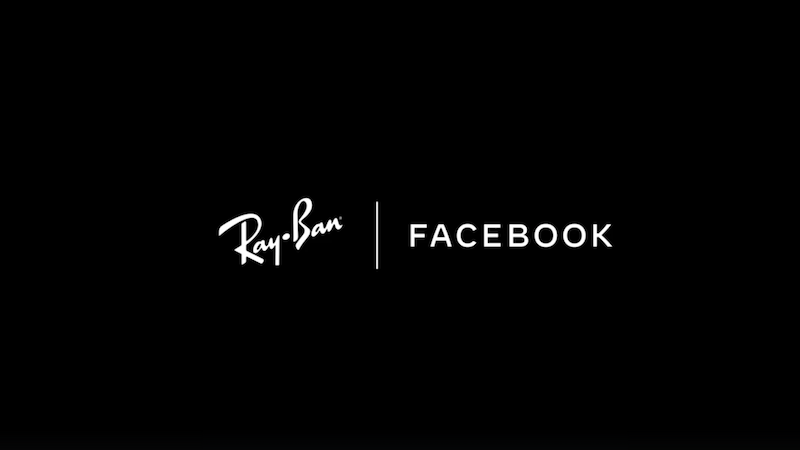Facebook wants to bring out its first Smart Glasses in 2021 – and has teamed up with the popular eyewear label Ray Ban for this purpose. The smart glasses will mark the first step towards augmented reality. But what else can they do?
When Facebook was developing Smart Glasses, it thought about something that all other developers had previously paid little attention to: design.
The company plans to launch its first pair of smart glasses in 2021, in collaboration with Italian eyewear manufacturer Essilor Luxottica – the parent company of Ray Ban. This is reported by the technology portal The Verge.
Facebook releases Smart Glasses in Ray-Ban design
“I am pleased to announce that we have entered into a multi-year partnership and will launch our first pair of smart glasses next year,” said Facebook CEO Mark Zuckerberg at the virtual conference “Facebook Connect” on September 16.
The smart glasses are to look like Ray Ban’s Wayfarer model and also carry the Ray Ban logo. Facebook and Essilor Luxottica therefore attach great importance to the design, which they also communicate in the first advertising clip.
Facebook has not announced any further information. So far we only know that the Smart Glasses will come without an integrated display. This would make them more reminiscent of Snapchats Spectacles than Google’s Google Glass data glasses, for example.
But Zuckerberg also said that the glasses could be used to display directions, recommend music in a record store and get tips if we lost our keys.
With the Smart Glasses in the direction of Augmented Reality
With the launch of the Smart Glasses, Facebook wants to take the first step towards augmented reality glasses. Secretly, the company is supposed to be working on the prototype of AR glasses under the “Project Aria”.
According to The Verge, Facebook has already tested it with employees and contractors in a real environment. However, it is likely to be some time before a corresponding pair of glasses comes onto the market.
Facebook is initially concentrating on the Smart Glasses cooperation with Ray Ban. The standard quotes Andrew Bosworth, the vice president of Facebook Reality Labs, as saying
“We are always looking for devices that allow people to stay in touch more effectively with the people they love. Smart Glasses have the potential to do that.”
Rocco Basilico, Chief Wearables Officer of Luxottica, is also enthusiastic: “We are particularly proud of our collaboration with Facebook, which will launch a cult brand like Ray Ban into an increasingly digital future. With this cooperation, we are paving the way for a new generation of products that will change the way we look at the world.
Will Smart Glasses soon replace the smartphone?
Smart Glasses have not yet made the breakthrough – partly because they don’t look very suitable for everyday use. Facebook and Ray Ban could now change that.
But the question also remains as to what technical possibilities smart glasses can really bring with them – and whether they will eventually replace the smartphone.
Google released the first Google Glass back in 2014, Snapchat last year the third generation of Spectacles. Both products have so far hardly been anchored in society.
So we can wait and see what added value Facebook’s Smart Glasses will offer alongside our existing technical devices. We can also only speculate about the price.
This is what the competition looks like
For a long time, Google only sold its data glasses to partner companies such as Volkswagen and DHL for specific projects. Enterprise Edition 2 has only been freely available to developers in the USA since the beginning of 2020 – at a price of between 1,000 and 1,100 US dollars.
The background is that the smart glasses for the end customer market simply failed. Google was long ahead of its time. Nobody in our society had any need for the device.
And the Snapchat Spectacles seem to be more of a social media gimmick for influencers and businesses – and at 370 Euros, it doesn’t cost very little either.
Amazon is also working on glasses with Alexa voice control. The Echo Frames should be able to replace normal glasses. Opticians will therefore be able to use optical glasses with prescription. The glasses connect to an Android smartphone via Bluetooth and connect to Alexa voice assistant.
But even here the question of sense arises. With the Echo Frames, phone calls should be possible via Alexa’s internal call function. But if you want to call someone, you’d probably prefer to take your smartphone in your hand.
So the role of smart glasses in society is currently insignificant. Facebook could change that with a mixture of interesting technical possibilities, an attractive design and good value for money. So perhaps the next technical revolution is just around the corner.










